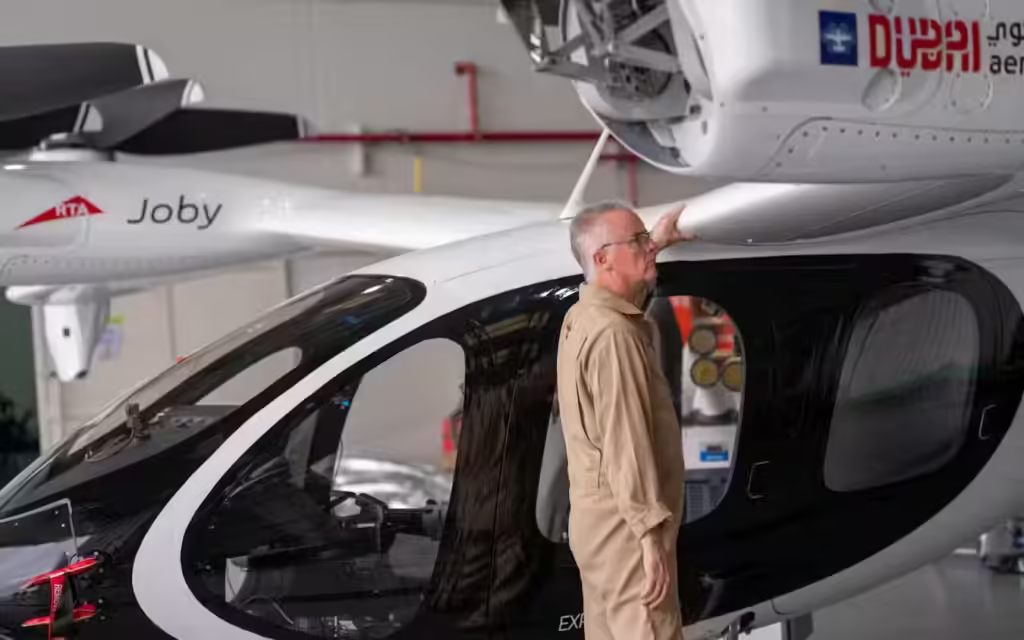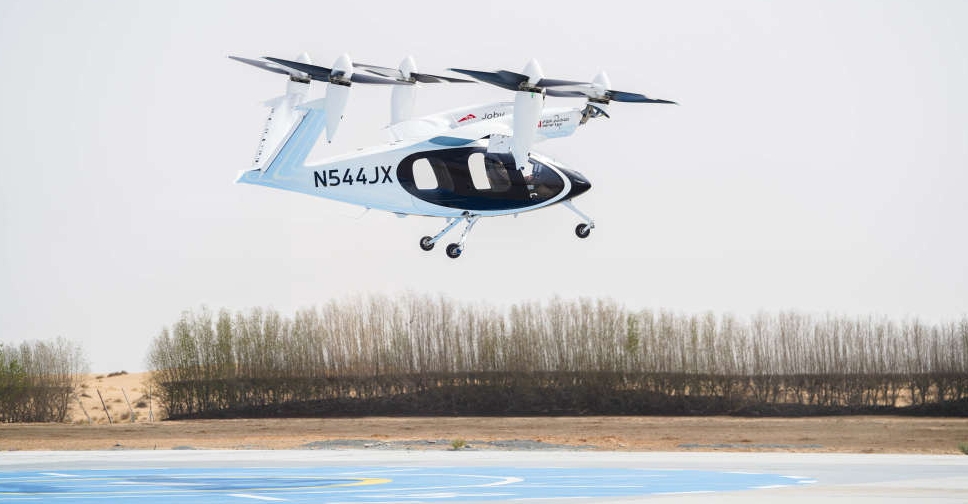Joby Middle East: “From Lab to Launchpad”
Joby Aviation posted an article on the company’s website this week written by the company’s President of Aircraft Original Equipment Manufacturer (OEM), Didier Papadopoulos.
After stating how challenging it is to bring a new aircraft to market that involves “years of dedicated engineering, validated performance in extreme conditions, regulatory alignment and the operational muscle to deliver,” Papadopoulos points out the importance of Joby’s recent piloted flight test campaign in Dubai that included “vertical takeoff, transition to and from wingborne flight, and vertical landing–involved critical commercial market readiness work, marking an important step on the road to passenger service.”
He explains these trial flights expanded the environmental envelope of the eVTOL. “Conducting flights in ambient temperature nearing 110°F provided critical data on thermal management system performance for every part of the aircraft, including battery packs, actuators and electric motors. Sustained operation in a challenging set of environmental conditions (temperature, humidity, sand, dust, etc.) directly informs our operational models and showcases system reliability across diverse climates.”
Such tests also allowed Joby to evaluate flight dynamics and control in thin, hot air. Papadopoulos continues, “Lower air density impacts lift and thrust efficiency. Our pilots assessed the aircraft’s responsiveness and handling under these specific conditions and confirmed that the aircraft handled as predicted.” Adding, “This data is invaluable for refining operational procedures and performance envelopes and will be used in FAA certification.”
An obvious requirement was to confirm the performance of the aircraft “in the parameters used at the anticipated vertiport locations, particularly our first location near Dubai International Airport (DXB). Vertical takeoff, transition to wingborne flight and landing are complex maneuvers that need to be achieved reliably and in real-world conditions, which our aircraft demonstrated.” He then points out, “Commercial market readiness extends beyond the aircraft. It encompasses the entire ecosystem required for routine passenger service.”

Didier Papadopoulos
Papadopoulos sets out the success of three primary objectives.
: Maintenance and Logistics - The Joby team included FAA-certified test pilots and mechanics and Dubai-based operators. Their ability to establish and execute efficient ground operations, charging protocols and aircraft turnarounds in a new, demanding environment provided critical real-world data points for the company’s passenger service model. These operations also provided essential “real-time insight into aircraft maintenance, engineering, and continued airworthiness procedures, critical parts of the FAA’s type certification requirement.”
: Regulatory Coordination - The campaign involved close coordination with a variety of regulators. These were: Dubai’s Roads and Transport Authority (RTA); the General Civil Aviation Authority (GCAA); the Dubai Civil Aviation Authority (DCAA); Dubai Air Navigation Services (DANS); Dubai Police and Civil Defence; and many other agencies.
This direct, in-market regulatory engagement, provided “real-time feedback for operational approvals, from access to airspace for flight tests to aligning on daily operations standards.”
: Infrastructure - The construction of the first dedicated vertiport at DXB by Skyports underscores the parallel need for ground and not just passenger infrastructure. The MRO (maintenance, repair and overhaul) base established for the campaign is the first in the region, providing critical operational support for Joby’s fleet when a commercial service is launched early next year.
The insights gained from the first set of trials in Dubai complemented the company’s significant progress in FAA Type Certification in the U.S. Most recently, the FAA “human-in-the-loop simulation, which modelled eVTOL integration into LAX’s complex Class B airspace.”

In addition, the recent guidance from the FAA which clarifies eVTOL airspace integration. Air traffic controllers enforce strict spacing between aircraft, greatly reducing the allowable tempo of airplane operations compared with helicopters. By instructing air traffic controllers to manage powered-lift aircraft like helicopters, this new guidance enables seamless, high-tempo operations in busy airspace.
For Joby, the recent flight test campaign in Dubai has been the best glimpse yet into the future of urban air mobility.
Papadopoulos emphasises, “It not only expanded our understanding of the aircraft’s capabilities in real-world conditions, but also highlighted the importance of the components, systems and operational procedures needed for market launch.”
The insight gained is that Joby feels even more confident and prepared now for its anticipated commercial service in Dubai, beginning next Spring.
For more information
(Top image: Joby Aircraft recently flying at Dubai)
For the latest news, insights and content regarding the global Advanced Air Mobility market, please join the following eVTOL Insights channels: WhatsApp, Facebook, Instagram, Spotify, Apple Podcasts, YouTube, X and LinkedIn.


